تاریخ حیات بر روی زمین
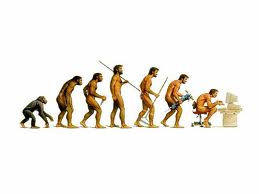
فایل صوتی ندارد
The History of Life on Earth
For centuries, people have found fossils-the remains of organisms that once lived on the Earth. But it has only been in the past century that scientists have been able to study fossils systematically, by comparing findings from different locations and from different layers of rock. Today, scientists have determined the approximate sequence in which life forms have appeared, evolved, and disappeared here on our planet. The age of the earth has been estimated at about 4.5 billion years, based on a technique called radiometric dating. This technique is based on the fact that certain radioactive elements slowly decay into other elements. By measuring the ratios of the different kinds of elements in rocks, scientists can estimate the age of those rocks. According to these tests, the earth (and moon) are about 4.5 billion years old. Some forms of life emerged very early in the history of the earth. Fossils of some organisms similar to blue-green algae have been dated as being more than three billion years old. For billions of years, however, the earth had only very simple, single-celled forms of life.
During this period, there were not yet any complex organisms made up of many cells. About 570 million years ago, there was a sudden expansion and diversification of multi-cellular organisms. During the next 325 million years, many varieties of plants and animals evolved. Most life forms existed in the seas, and many kinds of fish emerged during this time. But some animals also began to live on land, and the first reptiles and amphibians appeared. Large forests of fern-like trees covered much of the land. About 245 million years ago, reptiles began to proliferate. Huge dinosaurs roamed the earth. This age of dinosaurs ended about 65 million years ago, and many scientists believe that the dinosaurs were eliminated when a comet struck the earth, creating a huge cloud of dust that blocked sunlight.
Some reptiles did survive, and so did the ancestors of today’s birds and mammals. During the past 65 million years, many new varieties of birds and mammals have evolved. Some of these animals were very large, but are now extinct. Within the past two million years, several “ice ages” have occurred. Large areas of the earth were periodically covered by thick sheets of ice. In between these ice ages, warmer periods prevailed. During these recent times, humans gradually evolved. The earth is indeed very old, and people have experienced this planet for only a short time. But we have begun to learn many interesting things about the history of life on earth.
approximatesource 1
almost correct or accurate, but not completely so
an approximate number/total/cost
The cost given is only approximate.
Use these figures as an approximate guide in your calculations.
Opposite:exact
source 2
an approximate number, amount, or time is close to the exact number, amount etc, but could be a little bit more or less than it [= rough; ≠ exact]:
What is the approximate number of students in each class?
These percentages are only approximate.
sequence

source 1
a set of events, actions, numbers, etc. which have a particular order and which lead to a particular result
He described the sequence of events leading up to the robbery.
source 2
the order that something happens or exists in, or the order it is supposed to happen or exist in
in a … sequence The questions should be asked in a logical sequence.
Be careful to perform the actions in the correct sequence.
in sequence Number them in sequence, 1,2,3 etc.
out of sequence The chapters may be studied out of sequence.
evolve
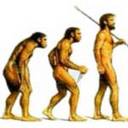
source 1
to develop over time, often many generations, into forms that are better adapted to survive changes in their environment
evolve (from something) The three species evolved from a single ancestor.
evolve something The dolphin has evolved a highly developed jaw.
source 2
if an animal or plant evolves, it changes gradually over a long period of time
evolve from Fish evolved from prehistoric sea creatures.
Animals have evolved camouflage to protect themselves from predators.
ratiosource 1
ratio (of A to B)
the relationship between two groups of people or things that is represented by two numbers showing how much larger one group is than the other
What is the ratio of men to women in the department?
The school has a very high teacher-student ratio.
The ratio of applications to available places currently stands at 100:1
source 2
a relationship between two amounts, represented by a pair of numbers showing how much bigger one amount is than the other [↪ proportion]
the ratio of something to something The ratio of nursing staff to doctors is 2:1.
ratio between the ratio between profits and incomes
algae
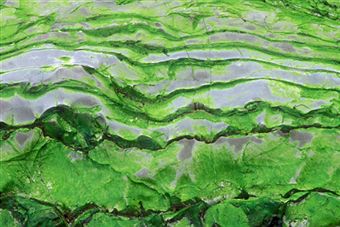
source 1
very simple plants, such as seaweed, that have no real leaves, stems or roots, and that grow in or near water
source 2
a very simple plant without stems or leaves that grows in or near water
expansion

source 1
an act of increasing or making something increase in size, amount or importance
a period of rapid economic expansion
Despite the recession the company is confident of further expansion.
The expansion of higher education will continue.
The book is an expansion of a series of lectures given last year.
source 2
when something increases in size, range, amount etc [= growth; ↪ expand]
expansion of
The rapid expansion of cities can cause social and economic problems.
expansion in an expansion in student numbers
diversification
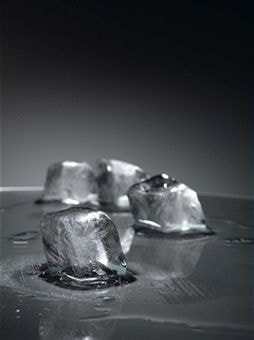
diversifyto change or to make something change so that there is greater variety
Patterns of family life are diversifying.
diversify something The culture has been diversified with the arrival of immigrants.
diversification noun [uncountable]
reptile
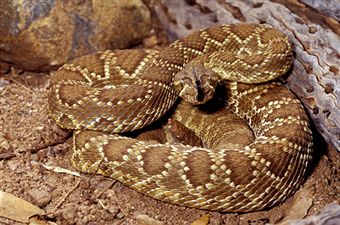
source 1
any animal that has cold blood and skin covered in scales, and that lays eggs. Snakes, crocodiles and tortoises are all reptiles.
compare: amphibian
source 2
a type of animal, such as a snake or lizard, whose body temperature changes according to the temperature around it, and that usually lays eggs to have babies
amphibian
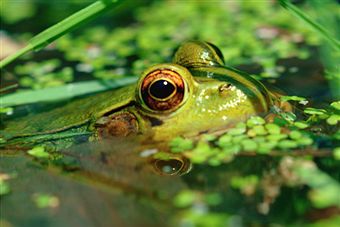
source 1
any animal that can live both on land and in water. Amphibians have cold blood and skin without scales. Frogs, toads and newts are all amphibians.
source 2
animals such as frogs that can live both on land and in water
fern
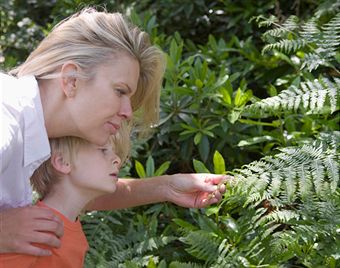
source 1
a plant with large delicate leaves and no flowers that grows in wet areas or is grown in a pot. There are many types of fern
source 2
a type of plant with green leaves shaped like large feathers, but no flowers
proliferate

source 1
to increase rapidly in number or amount
Synonym: multiply
Books and articles on the subject have proliferated over the last year.
source 2
if something proliferates, it increases quickly and spreads to many different places:
Computer courses continue to proliferate.
roam
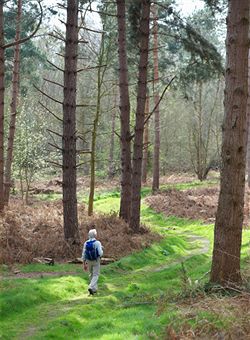
source 1
to walk or travel around an area without any definite aim or direction
Synonym: wander
(+ adverb/preposition) The sheep are allowed to roam freely on this land.
roam something to roam the countryside/the streets, etc.
source 2
to walk or travel, usually for a long time, with no clear purpose or direction [↪ wander]
roam over/around/about etc The dogs are allowed to roam around.
Chickens and geese roam freely in the back yard.
You shouldn’t let your children roam the streets.
roam the countryside/desert/forests etc Wild sheep roam the hills.
eliminate

source 1
to remove or get rid of something/somebody
eliminate something/somebody
Credit cards eliminate the need to carry a lot of cash.
eliminate something/somebody from something The police have eliminated two suspects from their investigation.
This diet claims to eliminate toxins from the body.
source 2
to completely get rid of something that is unnecessary or unwanted
eliminate a need/possibility/risk/problem etc The credit card eliminates the need for cash or cheques.
The teacher should try to eliminate the possibility that the child has a hearing defect.
eliminate something/somebody from something Fatty foods should be eliminated from the diet.
comet
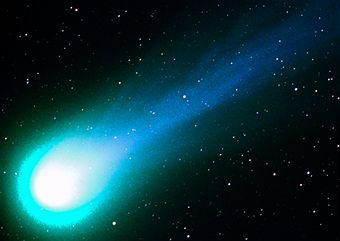
source 1
a mass of ice and dust that moves around the sun and looks like a bright star with a tail
source 2
an object in space like a bright ball with a long tail, that moves around the sun:
Halley’s comet
extinct

source 1
no longer in existence
an extinct species
to become extinct
The red squirrel is in danger of becoming extinct in England.
the fossilised remains of extinct animals
source 2
an extinct type of animal or plant does not exist any more:
Dinosaurs have been extinct for millions of years.
Pandas could become extinct in the wild.
an extinct species
prevailto exist or be very common at a particular time or in a particular place
We were horrified at the conditions prevailing in local prisons.
Those beliefs still prevail among certain social groups.